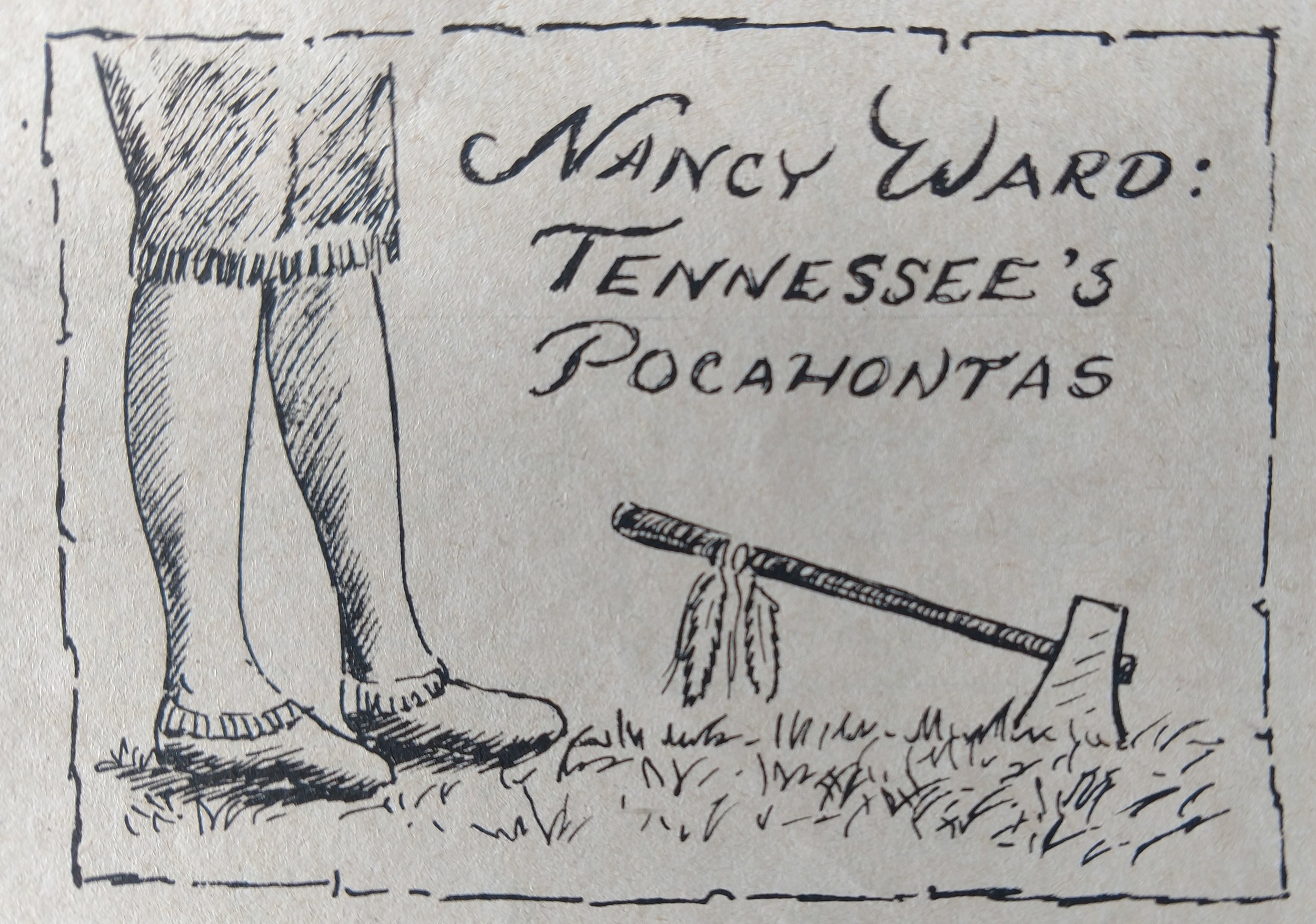The Trail of Tears and Nancy Ward
/Text and Artwork from Harry Lane’s Tennessee Memories
One of the most unhappy stories in Tennessee history involves the removal of Cherokees from East Tennessee by the U.S. Army in 1838, to areas west of the Mississippi River – Oklahoma in particular. The questionable Treaty of New Echota of 1835 was the legal basis for white claims to Cherokee land, and for the eventual removals of the Indians three years later.
Despite spirited legal opposition by Chief John Ross, other Cherokees, and by some white sympathizers, most Cherokees who remained in Tennessee at that time were uprooted and required to leave under military escort. [It is an interesting sidelight in the state’s history that only one Tennessee Congressman voted against a bill passed by the U.S. Congress for removal of the Cherokees. That man was the famous hero of the Alamo, Davy Crockett, who was promptly defeated in the next election.] John Ross was among those who took the sad route westward, which came to be known as the “Trail of Tears.”
Some Indian were able to escape the dislocation suffered by the others, by hiding in remote places in the Great Smoky Mountains. These remaining ones were later aided by a white North Carolinian, one Will Thomas, in obtaining an Indian reservation – the Qualla Reservation – at Cherokee, North Carolina. Many Cherokees still live there today.
Nancy Ward: Tennessee’s Pocahontas
Nancy Ward is one of the most intriguing women in Tennessee and United States history. Born about 1740 at Chota (also spelled Chote), the Cherokee capital on the Little Tennessee River, Nancy became the principal female of the Cherokee nation, and an important figure in the story of the Volunteer State.
Nancy was the sister of a Cherokee chief and cousin of Dragging Canoe, a fierce and dangerous war chief. First married to an Indian, Nancy fought as a warrior in a battle against Creek Indians in northern Georgia, after her husband was slain. She was given the title of “Beloved Woman” in appreciation of her exploits following the battle. This title made her the most powerful woman of the Cherokees, with a voice in the nation’s councils, and the ability to pardon prisoners of war. She was given a swan’s wing as her badge of authority.
In a remarkable incident that is reminiscent of Pocahontas’ rescue of John Smith, Nancy saved Brian Ward, and English trader, from death at the hands of the Cherokees about the time of the fall of Fort Loudoun (1760). She was friendly to white settlers and saved many through intercession when they were captured. Those she saved included Lydia Bean, wife of the first permanent white settler at Watauga. Desiring peace, Nancy did all she could to avoid bloody conflicts between the Indians and whites. Her late years were spent operating an inn on the Ocoee River near Benton, Tennessee, where the Federal Road crossed the stream. She died there in 1822. Her grave is nearby.





